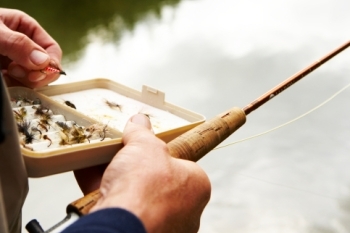Where Do Links Come From?
 Finding (and securing) good quality, user-friendly backlinks is an ongoing headache for search engine optimisation. If your SEO is suffering from a lack of links and your domain authority is dwindling, it could be because your SEO agency is looking for links in all the wrong places.
Finding (and securing) good quality, user-friendly backlinks is an ongoing headache for search engine optimisation. If your SEO is suffering from a lack of links and your domain authority is dwindling, it could be because your SEO agency is looking for links in all the wrong places.
Link development through rich content such as articles and infographics has become accepted practice for most SEOs. Even after a great many low quality article syndication sites were battered down by recent Google algorithm updates, developing backlinks through content built to be useful and interesting to users has led to many SEO agencies bringing armies of content developers on board to meet the new demand.
Bloggers and neutral authority sites are finding themselves swamped with guest post or content linking requests, but the savvier of these jealously guard the outbound links on their high PR domains which leaves a great many businesses struggling to get the links they need to raise their domain authority and develop their offsite SEO.
Ladies and Gentlemen, Bait Your Links
 Linkbaiting as a concept has been around for a while, contrary to popular belief. The core idea is not to create great content and then try to shovel it out to the web in bucketloads to build links for yourself – instead, build the great content and then keep it on your website to attract backlinks from other people. This takes the focus off “backlink building” in any sense and back to a completely content-focused approach – which search providers like Google have insisted time and again is the way to consistently good and sustainable SEO.
Linkbaiting as a concept has been around for a while, contrary to popular belief. The core idea is not to create great content and then try to shovel it out to the web in bucketloads to build links for yourself – instead, build the great content and then keep it on your website to attract backlinks from other people. This takes the focus off “backlink building” in any sense and back to a completely content-focused approach – which search providers like Google have insisted time and again is the way to consistently good and sustainable SEO.
The trick is to develop content which is related to your sector, product or service offering but to make it valuable, useful and above all interesting and shareable. A perfect piece of linkbait is entertaining and informative – whether you create it strait-laced or write with tongue in cheek to inject a little humour doesn’t matter, although most evidence seems to indicate that content which is amusing in some way has a far better chance of going viral in terms of the volume of social sharing, which makes it much better for linkbaiting.
Of course funny doesn’t work for everyone (as B2B clients will often remind their content marketers), but the principles still stand: interesting, informative, useful.
Future Proof Your SEO
 Get this amazing content onto your website, publicise it through social networks to extend its reach…and then wait. As with all SEO, patience is a necessity more than just a virtue – but if content is original and suitably interesting to the target audience then people will link to it just as people have linked to interesting things on the internet since the first public web browser was opened. Not all of those who link to you are going to be top performing, high page rank websites – but that’s okay.
Get this amazing content onto your website, publicise it through social networks to extend its reach…and then wait. As with all SEO, patience is a necessity more than just a virtue – but if content is original and suitably interesting to the target audience then people will link to it just as people have linked to interesting things on the internet since the first public web browser was opened. Not all of those who link to you are going to be top performing, high page rank websites – but that’s okay.
The most critical thing about link baiting is to remember that the links generated from it are 100% organic all-natural links made by real users to real content. That future-proofs them against any algorithm updates which target deliberate “SEO link building,” and has the fantastic side effect of raising your market presence and brand authority at the same time as it benefits your website in a purely search engine optimisation sense.
ExtraDigital have been linkbaiting since before the term was invented, which is why we so often recommend onsite articles and news systems to our website design clients, and why we spend more time producing great content than hunting down a million worthless directory links.
If your SEO is suffering from a builder’s approach and ought to start growing in a future-proofed, user and content-centric way, give us a call on +44 (0) 1227 68 68 98, or drop us an email and we’ll call you. It’s all about starting a conversation – with your SEO agency, your content development team, and above all your current and prospective customers.











